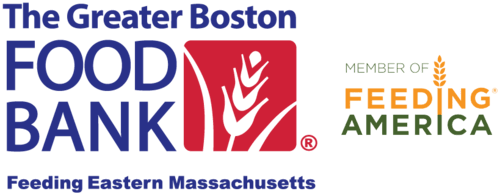Hunger-Free Campus Legislation Advances Closer to Law
HUNGER-FREE CAMPUS LEGISLATION ADVANCES CLOSER TO LAW
Bill Addresses Food Insecurity Among College Students in Massachusetts
Boston, MA | April 11, 2022 – The Greater Boston Food Bank applauds the advancement of comprehensive and visionary legislation intended to provide relief and resources to thousands of Massachusetts college students faced with hunger. “An Act Establishing the Massachusetts Hunger-Free Campus Initiative” bill was favorably reported out by the Massachusetts Joint Committee on Higher Education and assigned to both the Senate and House Ways and Means Committees, advancing the legislation one step closer to law. Bills S.2811 and H.1368, are sponsored by Senator Harriette Chandler (D-Worcester), Senator Joan B. Lovely (D-Essex), Representative Mindy Domb (D-Amherst), Representative Joan Meschino (D-Plymouth) and Representative Andy Vargas (D-Haverhill).
In Massachusetts, 39 percent of public university students are food insecure, and only 20 percent of food insecure students utilize Supplemental Nutrition Assistance Program (SNAP) benefits (Source). This critical legislation aims to provide a roadmap and funding to 2- and 4-year colleges and other education institutions that serve a significant proportion of low-income students to take steps to alleviate hunger and food insecurity on campus.
The Greater Boston Food Bank co-leads the statewide Hunger Free Campus Coalition that has worked with the bill sponsors, students, college administrations and anti-hunger advocates across the Commonwealth to build momentum and awareness behind this legislation.
“Burdened by student debt, Massachusetts college students are skipping meals to make ends meet,” said Catherine Drennan Lynn, Vice President of Communications and Public Affairs at The Greater Boston Food Bank. “With this advancement to both the Senate and House Ways and Means Committees, we are hopeful for passage of this bill into law, creating a path toward hunger-free campuses statewide.”
The bill includes steps such as establishing a hunger-free campus task force comprised of both students and administration staff that leverage local food assistance resources and federal nutrition benefits by notifying students of their potential eligibility for such government programs, developing a student meal credit-sharing program, creating an emergency fund to support students in crisis, providing capacity-building funds for campuses to implement these best practices, and more.
The Massachusetts public higher education system serves over 250,000 students annually. College student food insecurity is particularly high among Black, Latinx or multi-racial students, Pell Grant recipients, non-traditional student parents with children, LGBTQ+ students, and students with disabilities. This initiative prioritizes equity and ensures that all students, particularly these groups who are traditionally underserved, have access to food.
This legislation and the movement behind this hunger-free campus effort comes during a national hunger crisis and a once-in-a-lifetime opportunity for the state to leverage federal funding to boost our society’s most critical programs.
Recognizing this national need, the Biden-Harris Administration recently announced additional resources for students and institutions to meet the basic needs of housing and food access. This includes $5 million in new grant funding, providing new guidance to colleges and universities on using American Rescue Plan funds to meet students’ basic needs, and connecting students to additional federal resources for basic needs.
As rates of food insecurity in Massachusetts were exacerbated by the ongoing pandemic, this bill would serve as one step toward long-term anti-hunger strategies to combat food insecurity and advancing COVID-19 recovery efforts.
About The Greater Boston Food Bank:
The Greater Boston Food Bank (GBFB) is the largest hunger-relief organization in New England and among the largest food banks in the country. In response to the economic impact of the COVID-19 pandemic, GBFB distributed the equivalent of nearly 97 million meals in fiscal year 2021 through its network of 600 dedicated food distribution partners and programs in the 190 cities and towns across Eastern Massachusetts. A member of Feeding America, the nation’s food bank network, GBFB’s mission is to end hunger here and it is committed to providing at least three healthy meals a day to everyone in need. For more information, visit us at GBFB.org, follow us on Facebook, Twitter and Instagram, or call us at (617) 427-5200.
About the Massachusetts Hunger-Free Campus Coalition
The Massachusetts Hunger-Free Campus Coalition was formed in the fall of 2019 to address food insecurity among high-need populations enrolled in MA colleges and universities. Comprised of over 30 colleges, students, hunger-relief advocates, and anti-poverty organizations, collectively, the coalition is working to leverage and expand existing resources and services including maximizing student enrollment in federal nutrition programs such as SNAP, supporting meal swipe options with campus food vendors, ensuring that campuses work with food banks to expand food pantries, and other initiatives designed to address food insecurity among the student population. Our goal is to ensure equity and incorporate student voices as we work to make Massachusetts college campuses hunger free. To learn more, visit www.hungerfreecampusma.org, and follow us on Twitter (@CollegeHungerMA)
